Randolph professor, students continue tick research this summer
Randolph’s Summer Research Program is a competitive, paid program that gives students the chance to work closely with faculty members conducting research in their areas of interest. This story is part of an ongoing series featuring the work being done on campus this summer.
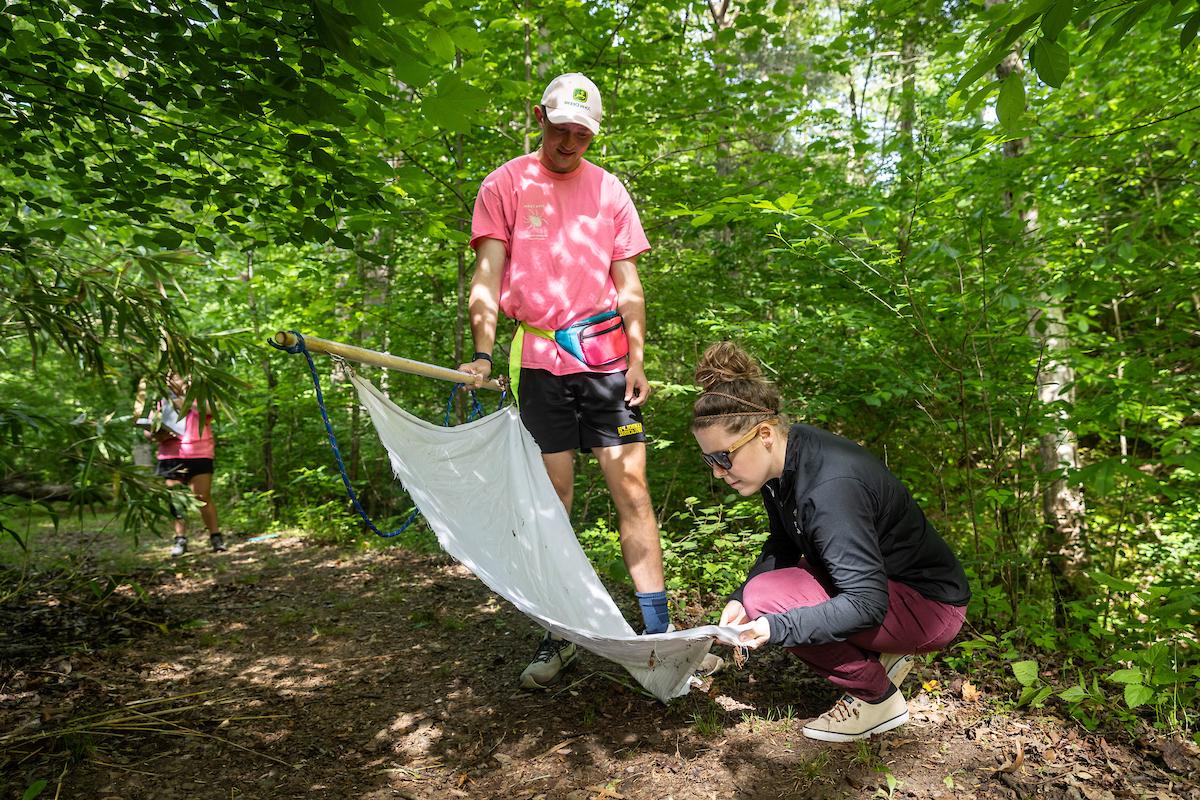
Biology professor Erin Heller, Ethan Caldwell ’25, and Gracie Oliver ’25 are collecting and studying ticks for summer research.
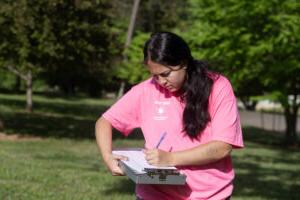
For the second summer in a row, biology professor Erin Heller has teamed up with Gracie Oliver ’25 and Ethan Caldwell ’25 to study the presence, abundance, and distribution of ticks across Lynchburg.
Their work is part of Randolph’s competitive, paid Summer Research Program, which gives students the chance to work closely with faculty members conducting research in their areas of interest.
“Ecological research tends to be long-term, so you can see trends,” explained Heller. “I plan to do this every year. The fieldwork is essentially the same—we’re going to the same locations and using the same methodologies—but this year we’ve added a molecular biology component.”
Last summer, they identified the tick species they collected by eye; now they’re using polymerase chain reaction (PCR) techniques to confirm their species identification.
“The first thing you have to know about molecular biology is it’s a lot of hurry up and wait,” joked biology lab technician Sara Harper-Roche, who is overseeing the lab work. “Once they collect the ticks and identify them, we extract the DNA and run PCR reactions, which takes about three hours. We use a kit that we have fine-tuned to get the best results.”
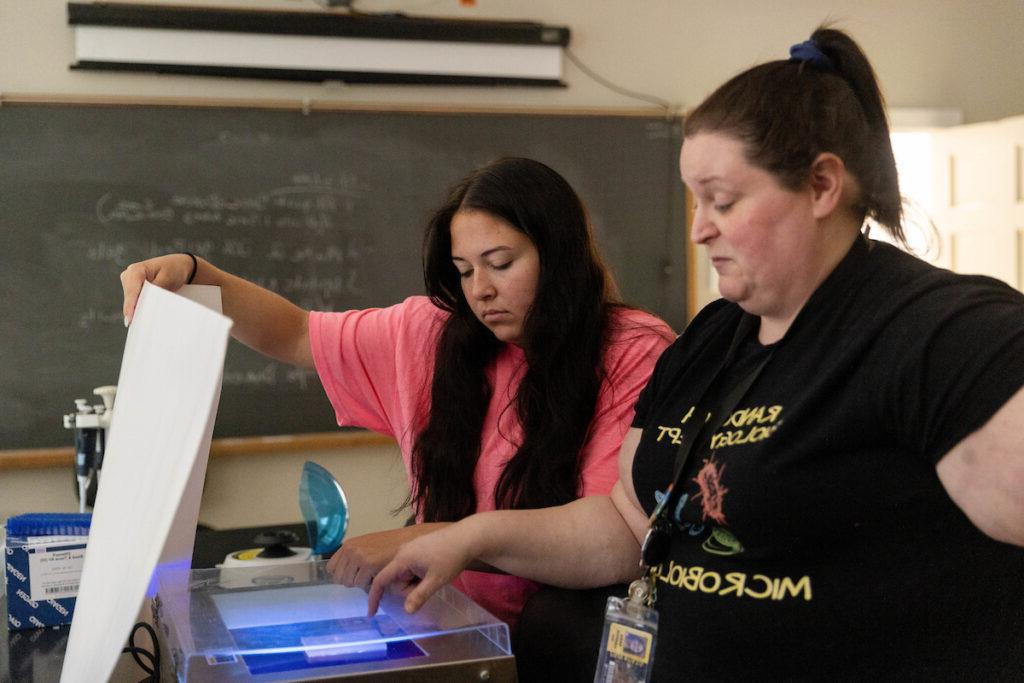
Biology lab technician Sara Harper-Roche and Gracie Oliver ’25 work in the lab.
Eventually, they will use a different PCR technique to test the ticks for Borrelia burgdorferi, the causative agent of Lyme disease.
For now though, Oliver and Caldwell are spending most of their mornings at five field sites spread across the city, including one on campus. Most of the sites are public parks and trails that are widely used by the general public. They drag a white cloth across designated areas to collect the ticks.
Afternoons are spent in the lab, working on the PCR reactions under Harper-Roche’s guidance.
“Biology tends to be diverse, with both field biologists and molecular biologists,” she said. “Molecular biology is not practiced in a vacuum. A lot of times, we are testing substances from field biology, especially when it’s related to human pathogens.”
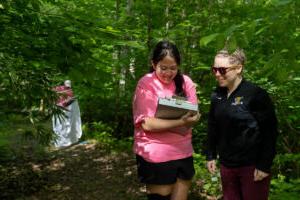
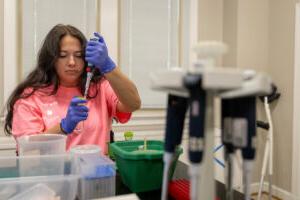
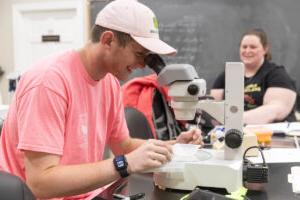
The techniques are covered in the College’s genetics lab.
“It’s been exciting,” said Caldwell, who is interested in wildlife biology. “I did a little bit of this over the past year in classes, but now I’m able to apply it, which is a lot more fun. It actually helps me understand it better.”
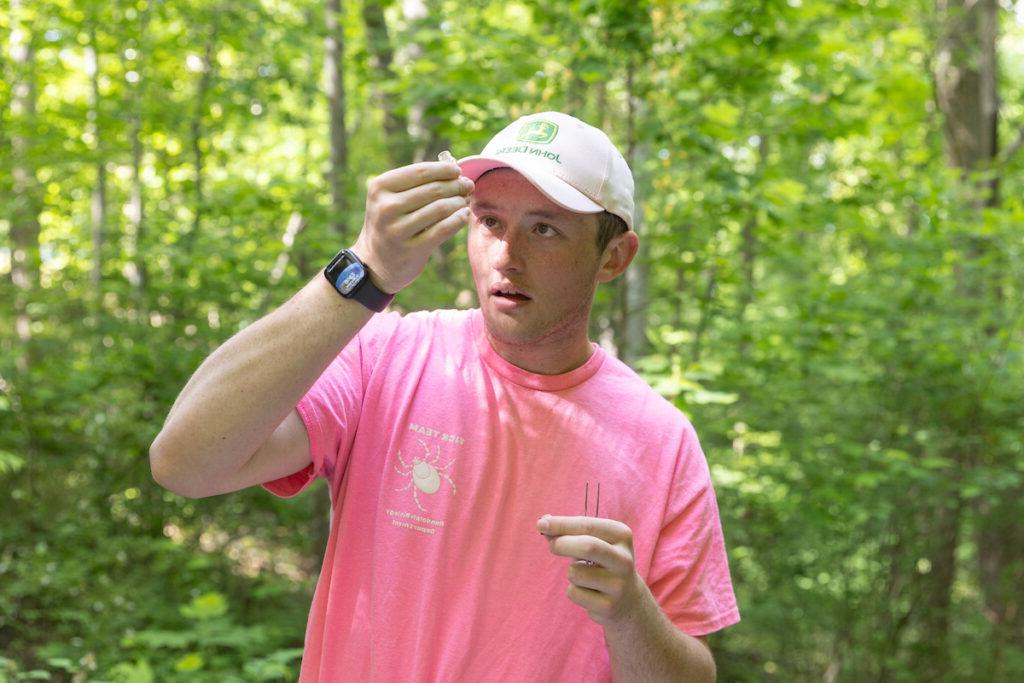
Oliver, who wants to go to medical school, works as a lab assistant during the school year and was intrigued by the opportunity to explore DNA extraction protocols.
“The only real learning curve was the DNA,” Oliver said. “It’s nice to have the constant of the fieldwork we’re already familiar with while we’re learning something new. It grounds you.”
For Heller, giving students the chance to experience a variety of hands-on work is rewarding.
“One of the things I like about tick research is that it inherently works well for people who have a variety of interests,” she said. “Even if they’re not specifically interested in ticks, you can do field work and lab work, and it’s relevant. It’s helpful for students to get both experiences.”
Tags: biology, Erin Heller, SRP 2024, summer research, summer research 2024, zoology
